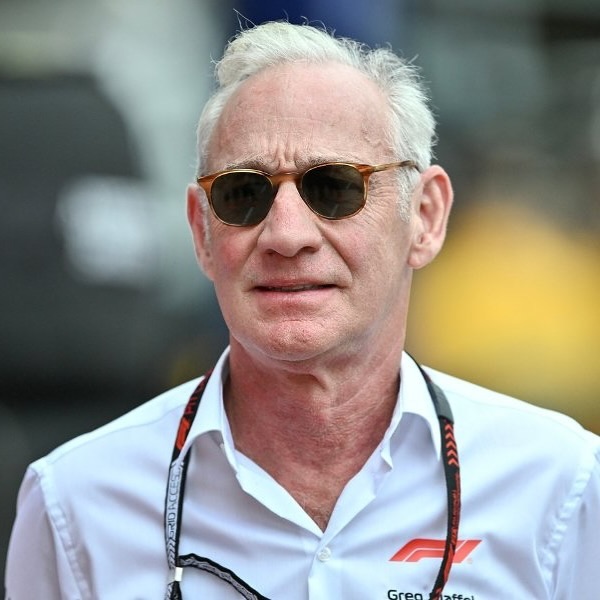Liberty Media Restructures with Liberty Live Spin-Off as CEO Greg Maffei Steps Down; John Malone to Take Interim Helm
In a landmark move that signals a new phase for Liberty Media, the diversified conglomerate announced plans to spin off several key assets into a new, publicly traded entity called Liberty Live. The restructuring comes alongside the news that Greg Maffei, Liberty Media’s CEO of nearly two decades, will step down at the end of the year. John Malone, the firm’s longstanding chairman and a trailblazer in the media and cable sectors, will step in as interim CEO. This high-profile transition reflects Liberty Media’s ambition to simplify its capital structure and sharpen its strategic focus as it embraces a more streamlined operating model.
Liberty Media’s investor day on Thursday in Manhattan is anticipated to provide more insight into the spin-off, with the company’s leadership expected to lay out the vision for both Liberty Media and the newly formed Liberty Live.
Liberty Media’s Spin-Off: A New Strategy with Formula One at the Core
Following the restructuring, Liberty Media will concentrate primarily on its motorsports assets, retaining global motorsports giant Formula One (F1) as a cornerstone of its portfolio. Acquired by Liberty in 2016, Formula One has proven to be a valuable asset, with Liberty driving a surge in its popularity, especially in North America. Liberty Media will also bring MotoGP, another prominent motorsport series, under its wing, upon closing a pending transaction.
Liberty Live, meanwhile, will become the home for Liberty’s non-motorsports assets. This spin-off includes roughly 69.9 million shares of live entertainment behemoth Live Nation Entertainment, sports experiences provider Quint, and several other related holdings. According to Liberty, the new structure is designed to clarify the company’s capital structure and unlock shareholder value by providing a clear delineation between the two entities.
Liberty Live’s business model will focus on growing its entertainment and sports properties, capitalizing on the rising demand for in-person experiences and live events. The investment in Live Nation, which operates over 40,000 events annually and owns Ticketmaster, offers a strong foothold in the live entertainment industry. As the live event sector rebounds post-pandemic, Liberty Live’s portfolio positions it to capture market growth in concerts, sporting events, and experiential entertainment.
Charter Communications and Liberty Broadband: A Strategic Merger
Another key component of Liberty’s recent announcements is the all-stock acquisition of Liberty Broadband by Charter Communications, where Liberty holds a 26% ownership stake. The merger aims to simplify John Malone’s intricate web of media and telecommunications assets while solidifying Liberty’s financial position through direct ownership of Charter’s fast-growing broadband business. Liberty Broadband has been public about its desire to consolidate with Charter, a move that reflects Malone’s consistent approach to streamlining his holdings while maintaining significant control over strategic assets.
This merger will also benefit Charter, strengthening its competitive edge in the broadband industry at a time when high-speed internet is a cornerstone of digital and economic infrastructure. By combining Liberty Broadband and Charter, Liberty Media anticipates unlocking efficiencies and enabling future growth through shared assets, improved liquidity, and expanded market reach.
Greg Maffei’s Departure: A Pivotal Leadership Transition
Greg Maffei’s departure as CEO marks the end of a transformative era for Liberty Media. Since joining the company in 2005, Maffei has played a central role in growing Liberty Media’s portfolio, overseeing numerous high-stakes acquisitions, divestitures, and restructurings. Known for his adept financial strategy, Maffei’s leadership helped Liberty evolve into one of the most influential players in the global media landscape. His work not only strengthened Liberty’s market position but also generated significant value for its shareholders.
In a statement reflecting on his tenure, Maffei noted, “Following today’s announcements at Liberty Media and Liberty Broadband, all the Liberty acquisitions completed during my tenure are now in structures where shareholders can have more direct ownership in their upside. While it’s never easy to leave an organization as dynamic as Liberty, I am confident that this is the right time.”
Maffei’s legacy includes Liberty Media’s high-profile acquisition of Formula One, a deal that exemplifies his strategic acumen in identifying high-growth, global entertainment assets. His work in growing Liberty’s holdings and steering the company through changing media landscapes has left an indelible mark. Maffei’s tenure also included navigating the challenges and opportunities of the pandemic, which accelerated shifts in consumer behavior and reshaped the future of digital and live entertainment.
John Malone’s Return as Interim CEO: The ‘Cable Cowboy’ Steers Liberty’s Next Chapter
John Malone, often hailed as the “cable cowboy” for his pioneering role in the cable and media industries, will serve as interim CEO of Liberty Media. Malone, who built his reputation through complex dealmaking and value-driven asset management, is expected to guide Liberty through this period of transition, leveraging his decades of experience and strategic foresight.
Malone’s influence in media extends back to the 1970s, when he transformed Telecommunications Inc. (TCI) into a cable powerhouse before selling it to AT&T for $50 billion in 1999. Since then, Malone has held leadership roles across a range of companies, including Liberty Media, Liberty Broadband, and Liberty Global. Known for his meticulous and disciplined approach, Malone has consistently prioritized shareholder value, often through spin-offs, mergers, and innovative tracking stock arrangements.
At 83, Malone’s involvement as interim CEO underlines his continued commitment to Liberty’s long-term vision. His expertise in media, telecommunications, and digital content will be vital as Liberty Media moves to capitalize on Formula One’s global reach while Liberty Live charts a course in the live entertainment and sports experiences markets.
Strategic Rationale and Industry Impact
Liberty Media’s restructuring comes at a time of change across the media, entertainment, and telecommunications sectors, where companies are increasingly focused on simplifying capital structures, expanding digital and live entertainment offerings, and maximizing shareholder returns. The Liberty Live spin-off reflects a broader industry trend among conglomerates and private equity firms to separate high-growth, consumer-facing assets from core business divisions.
With Liberty Media doubling down on Formula One, the organization is well-positioned to capture new audiences globally. Formula One’s popularity has surged, particularly in the U.S., due to an increasing fanbase, strategic marketing, and expanded broadcasting partnerships. Liberty’s decision to retain Formula One and MotoGP suggests a robust focus on high-profile sports properties that offer sustained viewer engagement and sponsorship opportunities.
The Charter-Liberty Broadband merger also represents a calculated response to industry demands for high-speed connectivity and broadband expansion. By integrating these holdings, Liberty Media enhances its financial agility and positions Charter to benefit from operational synergies, reduced overhead, and a consolidated market strategy.
Related: Bayern Munich Extends Jan-Christian Dreesen’s Contract, Reinforces Long-Term Leadership Strategy
The Road Ahead for Liberty Media and Liberty Live
The separation of Liberty Media and Liberty Live creates two distinct entities with clear, focused missions. For Liberty Media, the future centers on building the world’s most valuable motorsports assets, expanding Formula One’s influence, and positioning MotoGP as a complementary brand. Liberty Live, on the other hand, will offer investors a direct stake in high-demand live entertainment and sports experiences, buoyed by the comeback of large-scale events and public gatherings.
As Liberty Media prepares to spin off Liberty Live, investors will have more targeted access to each entity’s core strengths, allowing for clearer valuation metrics and enhanced liquidity. By building on Liberty’s foundational approach to value creation and asset management, this restructuring aims to unlock new growth avenues for both companies.
The upcoming investor day will provide further clarity, but the long-term outlook is clear: Liberty Media and Liberty Live are poised to thrive as specialized entities, with distinct strategies and clear market propositions designed to harness the evolving demands of media, entertainment, and technology. As Greg Maffei steps down and John Malone takes the reins, Liberty’s next chapter is one of focus, transformation, and resilience—hallmarks of Malone’s enduring legacy in the industry.











